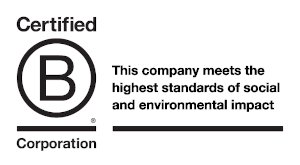Over the weekend of March 22nd-23rd Useful Simple had the privilege of working with ODI, Nesta and Bristol City Council on a very well organised “Innovation and Creation Weekend”.
We have affectionately referred to this as our hackathon though it was in fact quite different from a conventional hack. The Open Data Challenge Series approach is about bringing entrepreneurs, programmers, community activists and professionals working in a defined sector together over a weekend to use open data to generate new services and products. These services and products must be innovative, have the potential to be commercially viable and deliver societal benefits.
The teams at ODI and NESTA bring their expertise in open data, innovation and business incubation to create an environment that fosters idea generation and business development. They focus on big societal challenges and use different tools to support collaboration and competition including prizes and an accelerator programme to address those challenges. They invite partners with expertise in a range of sectors (Series Leads) to help them identify, develop and frame the challenges. Useful Simple was appointed Series lead for the Energy and Environment challenge.
The weekend event was the culmination of an intense stakeholder engagement process with a range of cities and leaders from across the energy sector including policy makers, data specialists, energy experts, suppliers, consumer representative bodies, innovators and local authorities.
The challenge in the energy sector has been crudely described as the energy trilemma: long term security of supply; the rising cost of energy; and tackling carbon emissions. The UK energy sector is suffering from a market failure. The market is controlled by 6 major companies who are responsible for generating over 70% of the energy used in the UK and for supplying energy to the vast majority of the population. Discussions with over 50 stakeholders suggested that community energy offers a huge opportunity to tackle some of the problems we are experiencing in the energy sector. The community energy sector is relatively immature in the UK but it is growing fast. The Energy and Environment challenge therefore focussed on the use of open data to support the growth and effectiveness of communities working in this sector.
The weekend brought together around 40 people and 16 teams to take part in the Innovation and Creation weekend. NESTA and ODI did a fantastic job using Collabfinder to collect the teams’ project ideas as they applied to take part. The event was held in the Bath and Bristol Science Park. This is a high quality space that is flooded with natural light and includes a wide range of spaces that worked brilliantly. There was a pitching and presentation space; space for each of the teams to develop their ideas; seminar rooms; quiet spaces for teams to rehearse their pitches; a communal eating area; and a private room for judging.
The weekend was artfully facilitated by Briony Philips from the ODI who brought her teacher training skills to run a very well organised event. She was supported by Ed Parkes from NESTA who did a brilliant presentation on how not to pitch.
A huge amount of support was provided to all teams through a series of formal and informal workshops and presentations. These included sessions on user-centred design, project evaluation, open data application, project design and pitching and business planning amongst other things. Guidance and supporting information were provided through the hackpad, which was a great place to share information.
At the beginning of weekend, there were a lot of interesting if immature concepts that were a long way from being strong business ideas. There was a huge amount for teams to take on board and it was remarkable how much concentrated work was done. During the weekend two teams from Scotland became one team, which was great as they were tackling similar problems from different perspectives. It was a marriage made in Bristol – we all like a bit of romance at a hack!!
One area that could be strengthened is the use of open data. I think it would have been helpful to have a rigorous demonstration of the way teams were using open data to develop new services and products. There are many ways that data can support innovation – sometimes this is about using old data in new ways or new data in old ways, but it was unclear how some of the projects were using data to support their concepts.
The highlight of the weekend was the pitch session. This was an intense two hour slot on Sunday afternoon in which 15 teams had 4 minutes to pitch to a panel of judges carefully selected for their expertise in community energy, enterprise and data. The judges who came from Nesta, RegenSW, Bristol City Council, CleanWeb / ODI, Bath & West Community Energy and GALOS put the team through their paces asking incisive questions. The pressure was palpable but the teams did a fantastic job channelling their stress. The judges had the very difficult job of selecting 3 winners from the 15 teams on the basis of the 4 minute pitch, a 200 word project overview and a project evaluation that was conducted by PWC on Sunday morning.
And the winners were: Energy Benchmark+, Community Energy Manager and Energy Schools. The winners addressed the challenge in very different ways: Energy Benchmark+ will create a generic tool that will help communities working in the energy sector share best practice; Community Energy Manager will help people understand how much energy they are using in relation to other people and share information among peers; Energy Schools provides new tools that will help schools work with pupils to reduce energy use in the community and potentially generate energy locally.
They have won £5k each and will now go through a three-month incubator process to compete for the £40k grand prize in June. In some ways all the teams were winners. We had the privilege of working with all the teams over the two days and without exception every team made significant progress in turning their ideas into strong propositions over the weekend.
The open data challenge is testing new ways to stimulate innovation and business around the use of open data. Processes that support innovation are going to be essential if the UK is going to compete in the global market place. The challenge process has demonstrated the value of bringing together open data, big challenges, smart people, prize money and support to create new services and products. It is early days but the Challenge Series is creating a model that promises to be a catalyst for business and societal innovation. The next step is to scale the process for different cities, communities and sectors. Stay tuned!
Post by Dan Epstein and Rosemary Willatt



